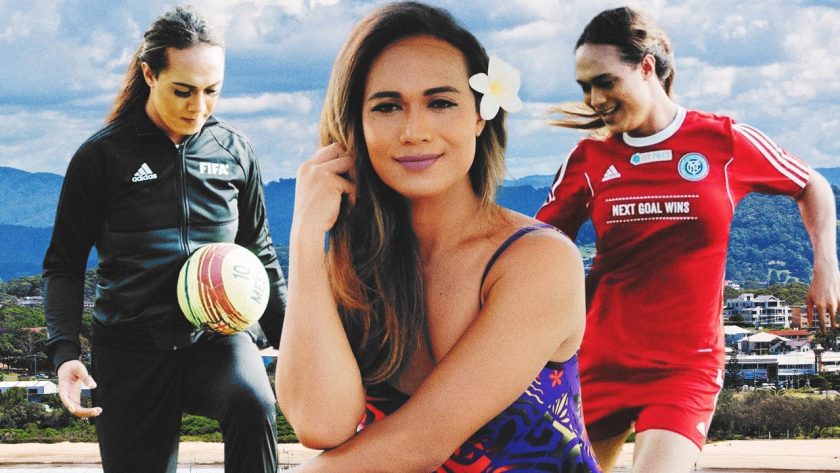Then also the white savior narrative, you can’t use that, because it’s based on a real story. Thomas literally is a white man who came to American Samoa and changed the story of (our team). But it goes both ways. It’s funny that critics were able to see that side of the story, but weren’t focused much on how we, as Brown people, helped change his life.
Yes, my takeaway was that the team saved him, really. And to your point, I agree. If we just pretend bad things don’t happen to queer people and it’s all fine and dandy, then we’re doing a disservice to the community too.
Exactly. We have to show our real life experiences on the big screen, as comfortable or as uncomfortable as they may be, as traumatizing as they may be…
(For audiences to see) trans people on the screen, it has the power to create allies, or at the very least sympathizers with our experiences. I think it’s important.
Also, these are experiences that were true to me, as well. I had so many breakdowns during my transition, and things like that actually happened. Those are real.
The whole transphobia thing, it didn’t sit well with me. I’m like, “Okay, they say it’s transphobic, but the lead female in the movie is a trans woman.”
Obviously, especially for this next generation of trans athletes coming up, that’s an issue that they’re running up against. As someone who’s now an icon of diversity in the sport, what message do you tell these kids?
I truly feel that it takes a lot of courage to challenge the norms, especially in the sports arena. I can’t imagine what they’re going through, and I can’t speak on those experiences, because it’s not my experience personally.
I guess what I’m saying is my privilege is having grown up in a place where I don’t need to feel validated in my experience, and I don’t need to pursue women’s sports. Every single faʻafafine in American Samoa, whether it be volleyball, even post-transition, whether it be volleyball, soccer, rugby, even—there are so many faʻafafine who play sports—we all play for the men’s side, and it’s a testament to our upbringing, our community, and our society. I think the experiences of young trans folk who venture into women’s sports, it speaks more to their surroundings and their environments, the people and the communities that they are from.



